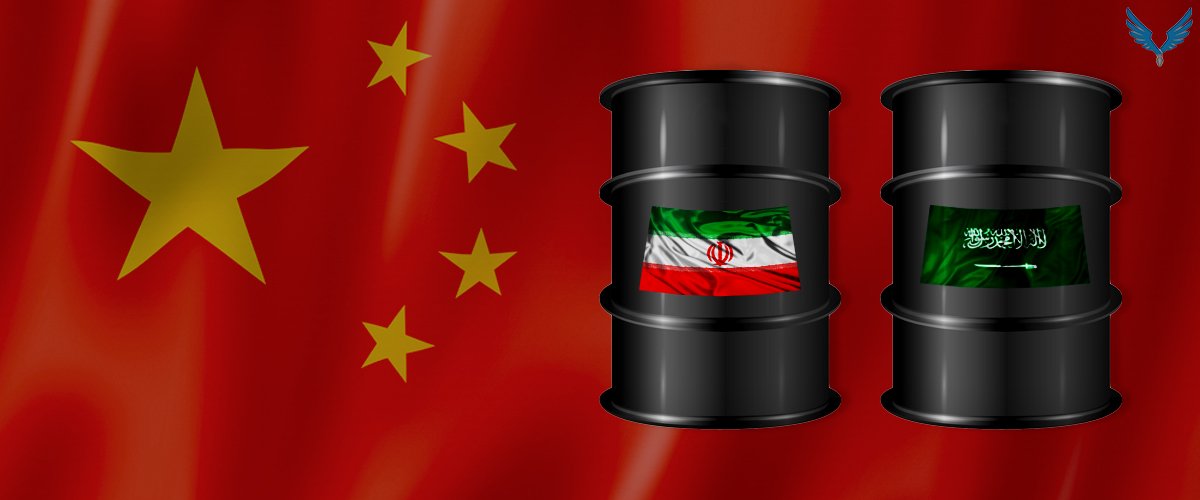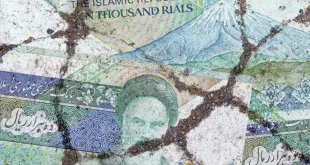The continuation of sanctions and the reduction of Iran’s oil share in the world market have caused many problems for all sectors of Iran’s energy industry and economy, and it will see an increase in problems in most areas due to the Trump administration’s “maximum pressure” policy. Currently, the Iranian government’s policy is to increase relations with its neighbors to reduce the impact of sanctions and, if possible, to circumvent sanctions. Active energy diplomacy coupled with stressful, active, and dynamic foreign policy is an important international relations tool allowing countries to create conditions for increasing their presence and influence in a specific part of the world.
China Leads the World’s Oil Imports
China is the world’s largest oil importer. The slowdown in economic growth along with the outbreak of the coronavirus provided a good opportunity for the country to buy cheap oil from the market and even increase its strategic reserve capacity to make the most of the decline in oil prices. China’s oil imports rose 11.34 million barrels a day in May, up 19 percent from a year earlier, according to S&P Global Platts. China’s oil imports peaked at 11.18 million barrels a day last November, with Beijing’s oil imports up 1.5 percent from May.
China‘s customs statistics showed that it’s oil imports from Iran between January and May 2020 reached more than 1 million tons, down 90 percent from the same period last year. China’s oil imports from Saudi Arabia doubled in May compared to the same period last year, and the country maintained its position as China’s largest oil supplier.
Iran’s Oil Exports to China: Gray Market Mobility
China has always been one of the largest buyers of Iranian oil. Despite the US sanctions on Iranian oil exports, Iran’s oil exports to China continued through the gray market, which has been repeatedly opposed by Washington. However, there are no accurate statistics on Iran’s oil exports to China in the gray market. China imported about 405,000 tons of oil, equivalent to about 100,000 barrels per day, from Iran last December. The report adds that in 2019, China’s oil imports from Iran amounted to about 14.77 million tons, or 300,000 barrels per day. But in February, Kepler reported that Iran had been able to sell 250,000 barrels of oil a day to China in the gray market. According to Reuters, Iran’s oil exports to China fell to their lowest level in a decade. This statistic shows that in the past month, Iran has only been able to export 52 barrels of oil per day to China.
Saudi Oil Exports to China: Infrastructure Investment Diplomacy
The Chinese and Indian energy markets have always been of interest to Saudi Arabia. To be more active in the energy market of these countries, Riyadh has invested in the energy infrastructure of these countries and offered a special discount to these countries. During Saudi Arabia Crown Prince Mohammad bin Salman’s visit to China in February 2019, the two countries signed a $10 billion energy deal. Under the agreement, Aramco and China’s Norinco signed a $10 billion contract to build a refinery and a petrochemical complex in the northeastern Chinese city of Panjin. In 2019, Saudi oil exports to China rose from 500,000 barrels to 1.7 million barrels per day, according to the US Energy Information Administration. Riyadh, meanwhile, is using the financial resources and technology of Chinese companies to achieve the goals of the 2030 Development Document and reduce the country’s dependence on oil imports, which will increase the role of energy exports in bilateral relations.
Saudi Arabia has used investment leverage to reduce Iran’s role as a competitor in the Indian energy market, and it is likely that it will use the same leverage to reduce Chinese oil imports from Iran. However, Iran could retain some of its stake in the Chinese oil market by offering a special discount to Chinese customers as well as insurance for Iranian oil tankers.
In April and May, Russia and Saudi Arabia were the two major suppliers of Chinese oil. According to the Chinese Customs Administration, Russia exported 1.75 million barrels of oil per day in April. Russia has increased its gas exports to China with the opening of the Power of Siberia Pipeline and plans to export LNG to China with the completion of LNG projects. Moscow does not want to lose the big Chinese market. Energy has always played an important role in expanding cooperation between Moscow and Beijing. And the role of energy exports in relations between the two countries is expected to increase more and more in the coming years.
Last year, the United States and China signed a trade deal to reduce trade disputes, and according to the first phase of the deal, the US will export $50 billion worth of oil, LNG, and petroleum products to China in the medium term. However, the outbreak of the coronavirus and rise of tension between Washington and Beijing has raised doubts about the implementation of this deal, which might increase Saudi Arabia’s role in China’s energy security.
China to Benefit the Most from Energy Cooperation and Competition
Iran and Saudi Arabia’s competition in China‘s energy market will certainly benefit China by importing the oil it needs with easy conditions and reasonable prices, as well as by bringing the regional policies of Iran and Saudi Arabia closer to those of China. The purchase of Chinese arms has always been of interest to Saudi officials. Saudi Arabia has announced that it is ready to buy Chinese drones. Saudi Arabia’s consumer market is a good destination for luxury and expensive Chinese goods, and Chinese companies are more active in all commercial and infrastructure sectors. In the face of sanctions, Iran does not play a significant role in China’s energy security, and it does not seem that Iran can easily gain its share of the Chinese energy market if sanctions continue. The energy market has its dynamics, and Iran may be able to continue exporting its oil to China under sanctions. But the state of Iran-China energy relations underlines that in order to maintain and increase its share in the Chinese energy market, and given the increasing role of major countries in the playing field, Iran must consider a special discount for Beijing and even have to pay for tanker insurance.
If the long-term cooperation document between the two countries is implemented, Iran can use the financial resources of Chinese companies to finance semi-finished projects. The capital and technology of Chinese companies can be useful in increasing Iran’s oil, gas, and petrochemical production capacity. But Iran will not find it easy to play an important role in China’s energy security, and it looks like China will benefit more from this cooperation. Increasing the investment of Chinese companies, if operational, will increase China’s influence and presence in Iran’s foreign policy. Therefore, Tehran should not expect interdependence in relations between the two countries. Moreover, continued tensions and rivalries between Washington and Beijing will affect the future of Iran-China relations.





